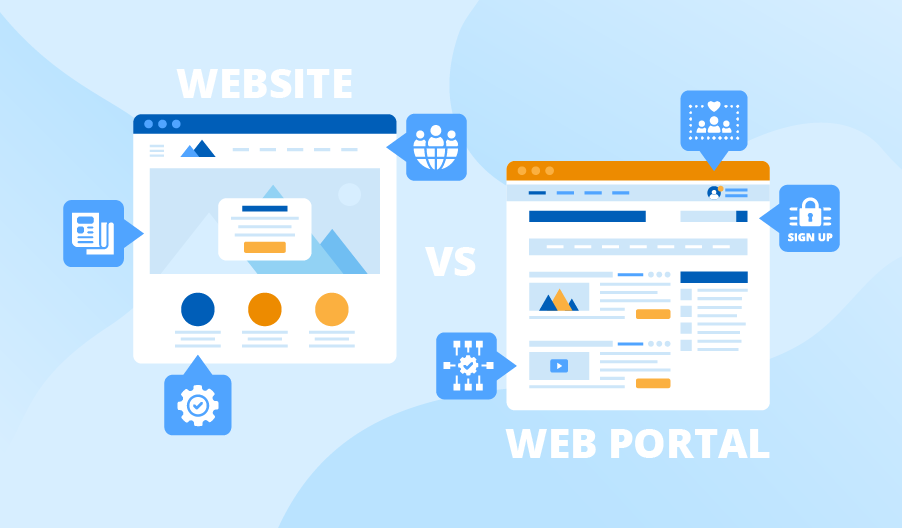Website vs. Web Portal: How Are They Different?
Editor’s note: Daria explores the main differences between websites and web portals and explains how to define which one your business needs. In case you are interested in creating your own website or web portal, don't hesitate to contact ScienceSoft’s portal development team.
In my practice, businesses often came over a stumbling block when deciding what type of web presence to choose. Having decided on a web development project in general, they wavered between a website and a web portal, usually admitting that they didn’t see a difference between these two options. If you find yourself in a similar position, don’t despair and read on – I describe both a website and a web portal and list their main characteristics to help you make an informed decision.

Websites and web portals: general overview
The main difference between a website and a web portal is that the website is an online destination open to a broader audience. In contrast, the web portal serves for specific groups of people. Content on websites is available to all users, and it is less personalized, and web portal content is usually available after you sign up.
At the same time, modern websites and web portals are changing, and they have some overlapping functions. More websites become personalized for their users, and there are web portals that have public-facing pages. For example, Gartner defines a web portal as a high-traffic website with a wide range of content, services, and vendor links.
Comparison: a web portal vs. a website
If you try to figure out which option to choose, here is a short guide that will help you make a decision.
- Audience: If you are interested in a broader audience of anonymous users, opt for a website. To cater to a specific audience, choose a web portal.
- Control of content: If you want to focus on delivering and managing content, choose a website. If you need advanced control over what users see, go for a web portal.
- IT ecosystem: If you don’t need multiple integrations with other business applications, a website may be a better choice. If you expect your solution to work coherently with internal and third-party applications, you’d better choose a web portal.
So, what is the right option for you?
The answer depends on the business you operate in and the tasks you try to solve online. If your primary goal is to increase sales and attract new customers, you likely need a website. If your objective is to retain the existing customers, improve their loyalty to your brand, and increase the overall brand recognition, a portal will be a logical choice. The web portal will also be the right fit in case you need to build a hub for efficient collaboration with your partners or vendors. And if you still feel unsure about your choice or, on the contrary, feel super sure and only need a reliable implementation partner as soon as possible, don't hesitate to contact ScienceSoft’s team. We would gladly help!

